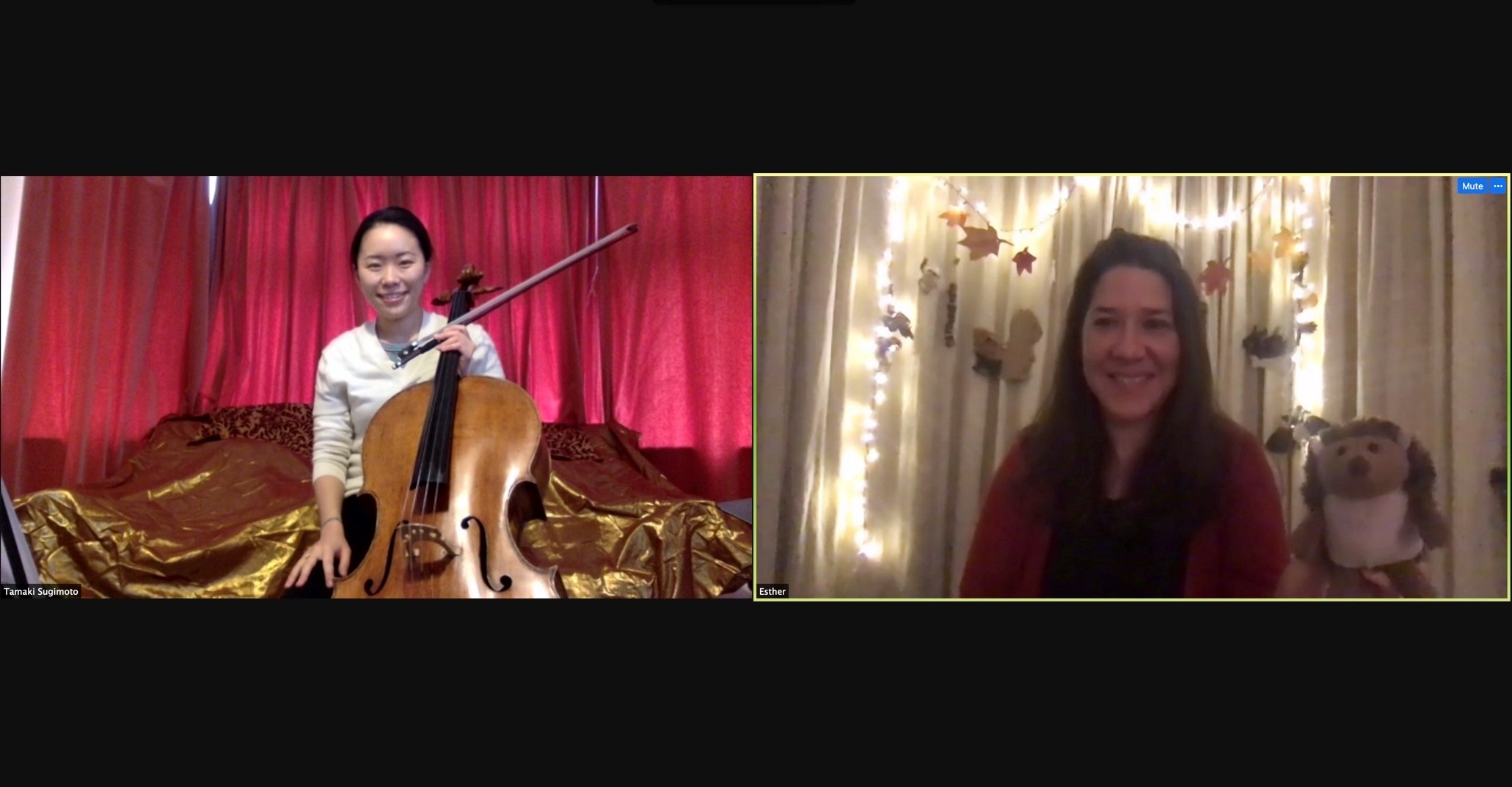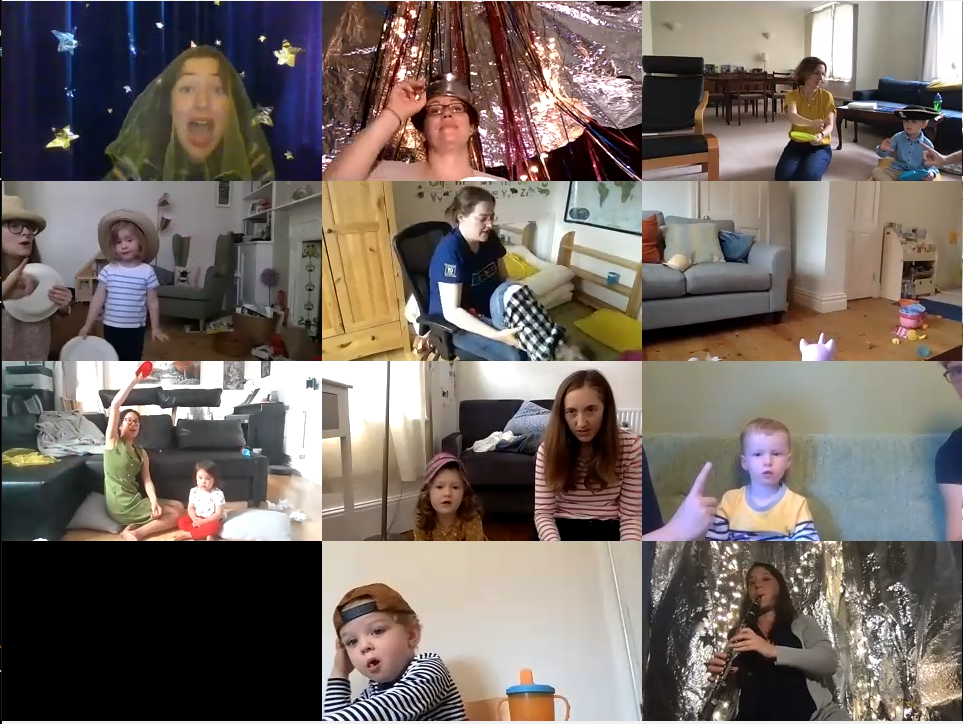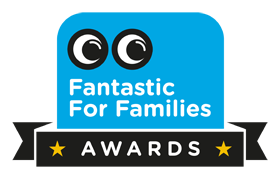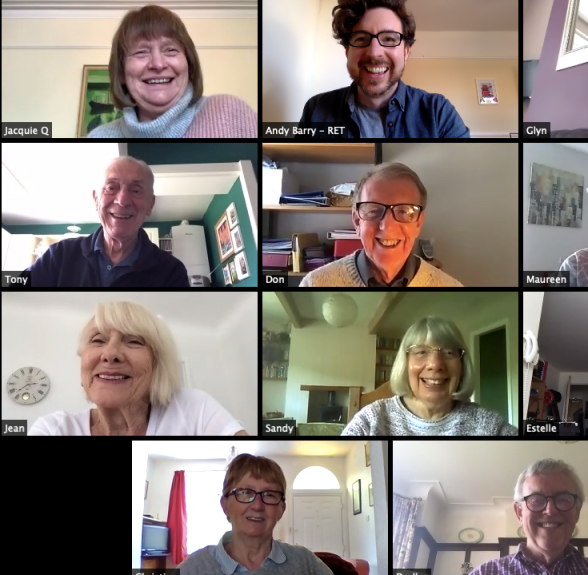Fantastic for Families Award 2021 Case Study
Sharing the joy of making music:
Chamber Tots at Home, Wigmore Hall
Last week, we were delighted to announce that Wigmore Hall were a winner in the Fantastic for Families Awards 2021 for their ‘Chamber Tots at Home’ programme, which won a Best Family Arts Activity Award.
Benjamin Redmayne, Programme Manager (Young People and Families) at Wigmore Hall, tells us more about the genesis, development and learnings of the programme.
How Wigmore Hall provided meaningful activities online for families to experience the joy of making music together.
After the initial shock of the first lockdown, we knew that connecting people through music was more important than ever and that this was a particularly difficult time for families. Music making with families has been at the heart of the Learning programme since we launched it in 1994. Since then, it has grown to encompass early years workshops, concerts for all ages, and partnerships with community organisations, co-creating activity with families who face barriers to making music. We firmly believe that music can strengthen bonds, provide enriching and inspiring shared experiences which enable families to express themselves and be creative together.
It was vital for us to create a space for families to make music together during the pandemic– a space that was fun, lively, engaging and had opportunities to make music together, listen to professional musicians and connect with other families. It needed to echo our core values of collaboration, creativity, and equality and importantly, be participant-led. Our early years practice is a key part of our programme, so we felt we would be best place to start with moving our music workshops for 1–5-year-olds and their parents/carers, Chamber Tots, online.
Moving to Zoom was a challenge. How can we support families to make music at home?* Our team of early years practitioners, Lucy Drever, Penny Osmond, and Esther Sheridan, rose to the challenge and with us they developed creative ideas, experimented, and pushed their workshop practice into the unknown to devise Chamber Tots at Home.
(*another big question we explored was how we support families without access to internet-enabled devices, something that we have sought to address but not the focus of this article)
About Chamber Tots at Home
Each online workshop explores a different theme, such as Space, Under the Sea and Time Travelling. Families co-create music with the music leader and supporting musicians through improvisation, singing, movement, and storytelling. Families also listen to short performances by early career musicians, giving them the chance to hear live music and providing paid training opportunities for emerging musicians. A handout is emailed after the workshop with further listening and activities they can do at home.

What we discovered working online
The comfort of home
We noticed that many families appeared freer to express themselves at home than at the Hall. Parents/carers embraced the workshop themes and activities, which led to more collaborative music making with their child. One leader noted “that parents were involved at every step including dancing, playing, and supporting their child”. At the Hall, parents/carers do commit to the activities, but not in the same manner as they did online. At home, families have access to everything they might need for their children (see ‘Props’), there is no worrying about the journey back home from central London, and families are always free to switch off their cameras if they want a break. A parent said about their child: “They are more confident playing their instruments at home than in the face-to-face sessions, because at home they do not feel so exposed”. Now that we are leading Chamber Tots at the Hall again, we are considering how we can emulate this “at home” feel into Wigmore Hall.
One leader noted
“that parents were
involved at every step
including dancing,
playing, and supporting
their child”

Props
While we use props in the in-persons sessions to accompany the theme of the workshop and stimulate music making, these were always chosen and provided by us. To aid the workshops online, we provided families with a “props/item” list. This was optional and designed to be everyday objects around the house. For example, we would ask for a “noisemaker”, this could be a pan and wooden spoon. We asked children to bring their favourite cuddly toys which often became part of the music making and made connections with other families. A parent reflected: “They asked the children if they would like to talk individually to the whale. My daughter sang a nursery rhyme to the whale…it’s something that she still remembers now.” There was an enormous joy from children sharing their toys or homemade instruments. We felt that children and families were more willing to share and contribute musically with their own things, so we have introduced a small, optional “things to bring” list to the sessions at the Hall.
Child-led music making online
Child-led music making is the core of our early years practice, and it was a challenge as a team to try and think how we could replicate this online. However, we experimented with several ideas, including creating group compositions using a set of pictures (for example, we used pictures of the different stages of a train journey and families provided different sounds to each picture) and using the spotlight feature on Zoom to focus on a child with a musician responding musically to their physical movement. Children also created drawings during the session for our musicians to interpret. This chance to experiment has led to a fresh approach to our practice and can be introduced to our in-person workshops.
(Workshop leader Lucy Drever has explored child-led music making online in detail for a report for Creative Futures)
Key Learning
We were all surprised about how much we learnt working online. For me, the most important things I learnt were:
Experimenting in a team – I have the immense pleasure to be surrounded by a dedicated team of early years practitioners. We all have different backgrounds, experience, and knowledge but when the lockdown hit, and we were faced with an entirely new way of working. It meant we were free to experiment with new ideas, had time to reflect and challenge ourselves in a level playing field. Our next challenge is how we continue to experiment now we have returned to familiar in-person workshops.
Families value creative opportunities in turbulent times – The response we received from families was heart-warming. We led 23 online workshops and made music with 166 families. The willingness of families to embrace the online format and collaborate with us stood out for me. It was great to engage with new families – some who were from other parts of the UK and who had never been to Wigmore Hall.
Being shortlisted for ‘Best Family Arts Activity’ is testament to the hard work of the early years team and that despite the immense challenges of the pandemic, families were still very much part of Wigmore Hall, even when our doors were closed.

Wigmore Hall is a leading venue for chamber and instrumental music, early music, and song. The Learning programme gives people of all ages and backgrounds opportunities to take part in creative music making through in-person and online creative projects, concerts, workshops, and resources.
22 November 2021
FURTHER INFORMATION

Benjamin Redmayne is the Programme Manager (Young People and Families), Wigmore Hall. Benjamin produces music workshops and concerts for young people and families at Wigmore Hall and in community settings across London. Contact Benjamin.





